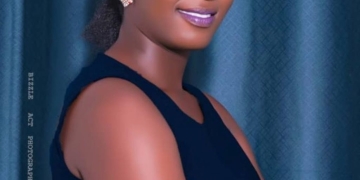
JUBA – As South Sudan braces for upcoming presidential elections, the nation stands at a critical juncture, grappling with the persistent specter of past conflicts and divisive identity politics. President Kiir and Dr. Riek Machar’s historical use of exclusive ethnic narratives has left lasting scars, threatening to perpetuate divisions and fuel violence.
The 2013 civil war, marked by ethnic tensions and power struggles, created a landscape of small ethnic kingdoms supporting the ruling elites, deepening societal wounds. With the looming elections, fears of a return to ethnic polarization intensify, risking further instability.
The elections’ outcome and electoral geography have the potential to mirror the enduring legacy of identity-based politics, hindering genuine reconciliation and peace. As a journalist covering South Sudanese politics, I’ve observed the intricate interplay of identities and power dynamics shaping the nation’s trajectory.
South Sudan’s challenge lies in transcending exclusive identity politics, fostering a more inclusive and forward-thinking vision for national unity and prosperity. The call is to move beyond the shadows of the past and embrace a future characterized by unity and resilience.
In the face of uncertainties, South Sudan’s future holds a glimmer of hope in the resilience of its people. As the nation approaches a crucial moment in history, the choices made in the upcoming elections will shape its trajectory—will it break free from identity-based divisions or remain captive to its past?
As a journalist specializing in South Sudanese politics, I’ve closely observed the complexities shaping the nation’s political landscape. The question of whether South Sudan can overcome the challenges of its conflicted past, moving beyond exclusive identity politics, is paramount as elections approach.
The scars of the 2013 conflict, fuelled by the power struggle between President Kiir and Dr. Riek Machar, linger. Divisive ethnic narratives used to control small ethnic and tribal kingdoms have left deep divisions within the nation.
Concerns among South Sudanese about the re-emergence of polarizing identity logic highlight the stakes of the upcoming elections. Central to a peaceful and inclusive process is the need for reconciliation between President Kiir and Dr. Machar. Bitterness and animosity between these key figures pose challenges to uniting the people and fostering national cohesion. Without genuine reconciliation and dialogue, the path to a free and fair election remains challenging.
The upcoming presidential election results and electoral geography are anticipated to mirror the enduring multiethnic polarization in specific regions of the country.
To overcome these divisions and build a more unified South Sudan, a collective effort is needed to transcend past grievances and embrace a future founded on cooperation and inclusivity.
At this critical juncture in South Sudan’s history, genuine reconciliation and dialogue are imperative. President Kiir and Dr. Machar must prioritize the nation’s collective well-being over personal animosities. Only through a shared commitment to peace, reconciliation, and unity can South Sudan successfully navigate challenges and pave the way for a brighter future for all citizens.
Emmanuel Malual Makuachis a South Sudanese journalist and researcher focusing on the impact of social media triggers in the conflicts of 2013 and 2016 in South Sudan. Contact him at malualmakuach77@gmail.com

















